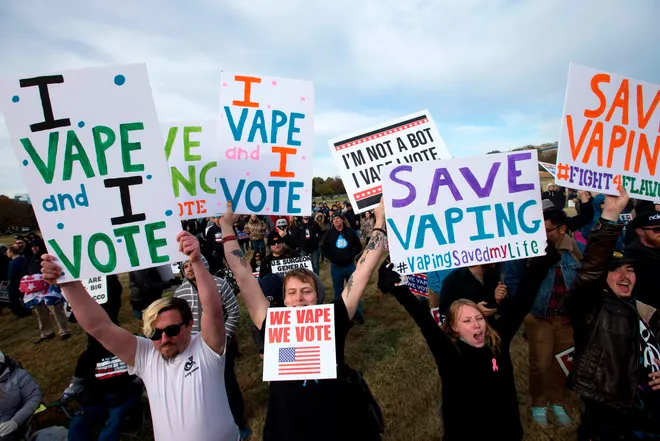Some of those suits, including a challenge to FDA approval of the abortion pill mifepristone, involve a sheen of politics – with conservative groups lining up to challenge the federal government’s power. At an earlier stage of the abortion pill case, the FDA drew the support of 253 members of Congress − all of them Democrats. The doctors challenging the drug secured support from 147 lawmakers − all Republicans.
Public health advocates worry the litigation could undercut the FDA’s authority broadly. The agency faced setbacks with several of the challenges – including the one involving ivermectin – at the New Orleans-based 5th U.S. Circuit Court of Appeals, among the most conservative appeals courts in the nation.
The 5th Circuit also blocked access to mifepristone earlier this year, a decision that was later put on hold by the Supreme Court.
“We’re seeing, especially the Fifth Circuit, aggressively second guessing the FDA,” said Dorit Reiss, a law professor at the University of California San Francisco, an expert on legal and policy issues surrounding vaccines. The appeals court, she said, has essentially been “telling the expert agencies that the judges think they understand better which data to rely on and which not.”
FDA warns to ‘hold your horses’ on ivermectin
While the FDA never approved ivermectin to treat COVID-19, it is approved in humans for infections caused by certain parasites. The doctors who sued last year argued that physicians, not the federal government, should make decisions about off-label drug use. They say their reputations were harmed by the FDA posts because they prescribed the human version of the drug to patients.
“Hold your horses, y’all,“ the FDA posted in one of its social media posts. “Ivermectin may be trending, but it still isn’t authorized or approved to treat COVID-19.”
The question for courts has so far been technical: Whether the doctors are permitted to sue the FDA or whether the agency is immune to such litigation because it was acting within its authority. A three-judge panel of the 5th Circuit – all three of whom were appointed by Republican presidents – sided with the doctors last month. The FDA, the court ruled, was acting outside the scope of its power, so the lawsuit could continue.
“FDA is not a physician,” the court wrote. “Even tweet-sized doses of personalized medical advice are beyond FDA’s statutory authority.”
It’s not clear if the Biden administration will appeal the ruling to the Supreme Court. The FDA, citing the pending litigation, declined to comment.

Abortion fight returns to Supreme Court
The highest-profile pending challenge to the FDA’s authority involves the abortion pill mifepristone. A months-long legal battle over that drug is currently pending before the Supreme Court, which is likely to take up the issue later this year or early next.
The 5th Circuit ruled on Aug. 16 that it would limit access to mifepristone, finding that the Food and Drug Administration overstepped its authority with a series of actions that made it easier for Americans to obtain the drug, such as allowing prescriptions to be filled by mail.
A wide swath of government agencies and outside experts have said the drug is safer than popular medicines such as Tylenol and Viagra. But the anti-abortion groups challenging the drug questioned those studies and argued that the FDA didn’t follow its own protocols as it expedited the drug’s approval more than two decades ago.
The Biden administration appealed in September and the Supreme Court in April allowed full access to the drug while the justices consider the case.
“No agency is above the law,” said Erik Baptist, senior counsel at Alliance Defending Freedom, a conservative legal advocacy group that is representing the doctors and groups opposing the drug’s approval. Baptist argued that “politics have pervaded the FDA’s actions on mifepristone from the beginning” and that the agency must “explain its decisions and have evidence to support its approvals.”
Experts say the case and others like it represent direct challenges to the determinations about safety and efficacy made by FDA’s scientists.
“What makes these cases interesting and important is not the fact that the FDA is being challenged. That has happened before,” said Lawrence Gostin, who directs the O’Neill Institute for National and Global Health Law at Georgetown University. “These cases, however, go to the heart of the FDA’s scientific determinations.”

Up in smoke?
The FDA and the vaping industry have for years been locked in a battle over e-cigarettes that come in flavors like “candy” or “dessert” that are particularly appealing to young people. In 2020, more than 19% of high school students and nearly 5% of middle school students were using the nicotine-delivering device, also known as vapes, according to a government study.
The agency has been reviewing – and denying – requests to sell those products for years, driving lawsuits that are now working their way up to appeals courts.
The Supreme Court earlier this month declined to hear one of those appeals – the latest in a series of legal setbacks for the industry. But the high court’s decision not to get involved may not be the final word on the matter.
Advocates on both sides of the issue are closely watching another case pending in the 5th Circuit in which an e-cigarette company argues the FDA pulled a “surprise switcheroo” by requiring more rigorous scientific data midway through the review process. Whichever side loses that case is likely to appeal to the Supreme Court.
Eric Heyer, an attorney representing the company at the 5th Circuit, argued that most adult e-cigarette users are former or current regular cigarette smokers. The industry has longed said the FDA isn’t giving enough weight to the benefits of people choosing vaping over traditional cigarettes.
“While FDA’s role in protecting public health is certainly important, that role does not uniquely exempt FDA from what the Supreme Court has described as the obligation of all federal agencies to ‘turn square corners’ with the public,” Heyer said. “Our appeal merely seeks to ensure that FDA is held to that longstanding standard.”
But critics say that if the vaping and mifepristone cases are decided against the FDA, it could “open the floodgates” of lawsuits challenging its decisions.
“That would be deeply harmful to the agency’s ability to protect the public’s health,” Gostin said.












